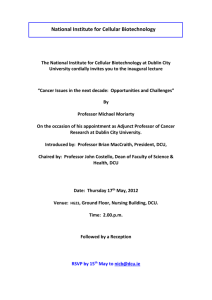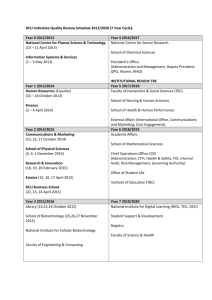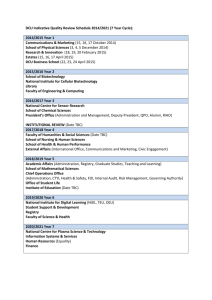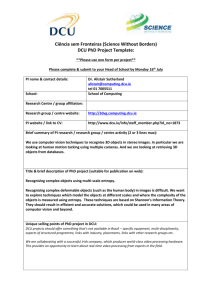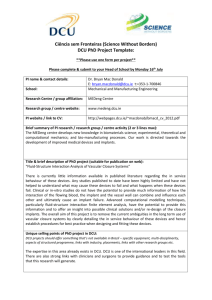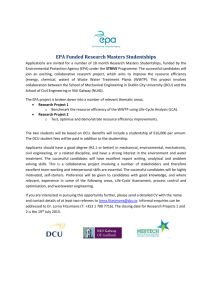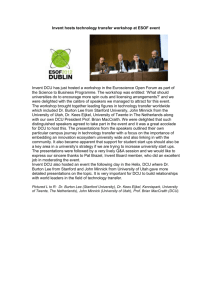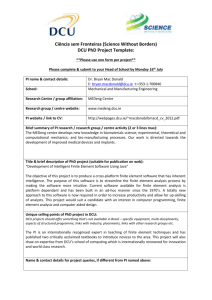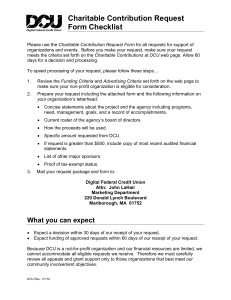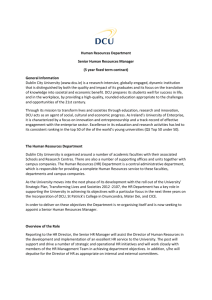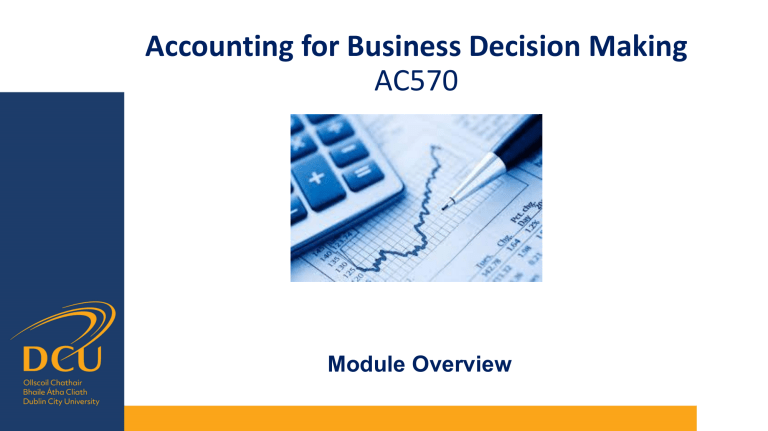
Accounting for Business Decision Making AC570 Module Overview Introduction • Lecturer: Alan McMahon • Email - alan.mcmahon@dcu.ie • Office hours: TBC, check loop page (AC570) best to email me. • Course materials on Loop- AC570 ‘23/24 https://loop.dcu.ie/course/view.php?id=61195 • Self-learning, question practice to gain proficiency and class participation/engagement are all important to be successful. What is Accounting? Accounting is concerned with collecting, analysing and communicating financial information. The ultimate aim is to help those using this information to make more informed decisions. E.g. whether to: • continue with certain business operations; • invest in particular projects; • or sell particular products/provide particular services These decisions can have a profound effect on all those connected with the organisation. Why am I studying it? It is important, that all of those who intend to work in a managerial position should have a fairly clear idea of certain important aspects of accounting and finance. These aspects include: • how financial reports should be read and interpreted; • how financial plans are made & budgets managed; • how investment decisions are made; • how businesses are financed; • how costs & cash* are managed. *Cash mgt. crucial to prevent business failure Module Overview This module provides students with an introduction to and overview of financial and management accounting. Students will be introduced to key topics in accounting such as financial statement analysis, cost volume profit analysis, basic investment appraisal techniques, performance measurement, financial v management accounting and cash flow analysis. Students will address core issues facing the professional accountant such as corporate governance, earnings management, the regulatory environment and models of both short term and long-term decision making and performance appraisal. Students will undertake a significant group based continuous assessment focusing on the techniques of financial statement analysis and informed investment decision making. The module is delivered via a serious of lectures. 5 credits Over 1 semester – 11 weeks, concludes w/c 27th November (2 hours p/w) Module learning objectives By the end of this module you will be able to: ~5 weeks Financial Accounting • Outline the fundamental principles underlying the preparation of financial statements • Discuss current issues in accounting including corporate governance and accounting regulation Management Accounting ~5 weeks • Describe the main cost concepts used in management accounting • Describe and explain the main tools of performance measurement, including non-financial metrics. • Understand planning and control techniques and be able to prepare simple budgets. Module workload Workload Full-time hours per semester Type Hours Description Lecture 24 Weekly lectures 50 Preparation for groupbased continuous assessment. 18 Revision of lecture materials following lecture 33 Preparation for year-end examination. Group work Independent Study Independent Study Total Workload: 125 https://www101.dcu.ie/registry/module_contents_archive_years_plus.php?subcode=AC570&function=2&module_archive_year=2021 Assessment 70% - Final Exam in December (11-22 tbc) 30% - Continuous Assessment Group Project- Financial Analysis & Interpretation Company Further details will be given in week 4 (early Oct) Reading List Recommended • Atrill, P. and McLaney E. (2019). Accounting and Finance for Non-Specialists (11th ed.). Harlow: Pearson Education Limited. • Philip O'Regan: 2016, Financial information analysis for Managers, Wiley, Chichester, 978-0-471-48923-8 Link to e-book: (DCU Library online search) https://ebookcentral-proquest-com.dcu.idm.oclc.org/lib/dcu/reader.action?docID=5601284
